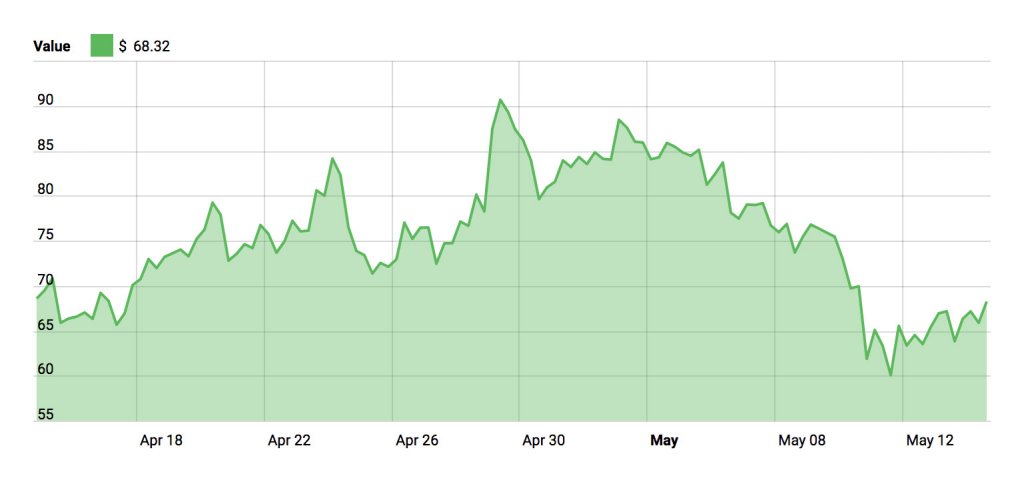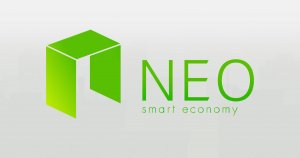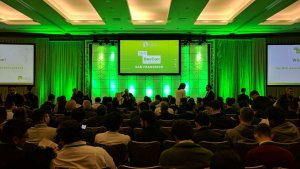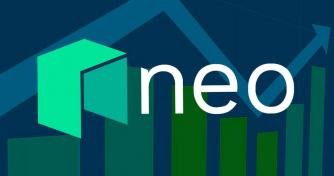 NEO Updates: Partnerships, Adoption and dApp Development Continues
NEO Updates: Partnerships, Adoption and dApp Development Continues NEO Updates: Partnerships, Adoption and dApp Development Continues

Photo by Vladimir Kudinov on Unsplash
Unfazed by the market’s recent up-turn, NEO’s value has stagnated in spite of the blockchain’s rapid advancement. As the smart contract platform of the world’s most populous country, one might be surprised by its modest position at 11th place by market cap ($4.4 billion).
Picking up the pieces of Q1’s correction, Ethereum has recovered to 55% of its all-time-high, where NEO squares up a whisker above 40%.

What is NEO?

To the uninitiated, NEO can be thought of as China’s rebuttal to Ethereum — squaring up with all the features of its western counterpart— Decentralized App (dApp) support, smart contracts and Initial Coin Offerings (ICOs).
While this likening is warranted, dig a little deeper, and several key distinctions set NEO aside from Ethereum’s “World Supercomputer.”
Ethereum’s goal is and was always to be an industrial-grade production line for DApps—and toting a $75 billion market cap and 500+ ERC20 tokens—they have seen prolific success in executing this vision.
NEO, on the other hand, sees itself as the distributed-platform for a new “smart economy.” In this digital future, physical assets are represented on the blockchain —able to be traded, bought and sold via smart contract technology.
Incorporating digitalized assets, digital identity, and smart contracts, NEO’s vision of a “smart economy” is built on the type of audacious vision akin to Chinese governance. NEO’s semi-centralized DBFT blockchain reflects this, with the NEO Council holding nearly 50% of tokens “to foster the ecosystem” — a common criticism by advocates of true decentralization.
The creation of serial blockchain founders Erik Zhang and Da Hongfei, NEO is a community-funded effort that is separate from Hongfei’s OnChain — a private blockchain company collaborating with the Chinese government and large enterprises.
For NEO, this relationship is a tremendous asset — naturally lending the nepotistic project success as the blockchain of choice for any of OnChain’s ventures — such as Ontology’s near-$1 billion decentralized trust network.
NEO Global Capital and Fenbushi Capital Back NewEconoLabs
NewEconoLabs (NEL) has whipped the curtains off strategic partnerships with Fenbushi Capital and NEO’s own NEO Global Capital — who will support the launch of NEL’s NEO Name Service (NNS) — an open-source domain name system based on NEO.
NewEconoLabs (@NewEconoLab) have announced strategic partnerships with Fenbushi Captial and NEO Global Capital for the $NEO Name Service project (@NeoNameService). https://t.co/kx4o1HhNzj
— NEO News (@NEOnewstoday) May 5, 2018
As an open-source community of Chinese developers, NEL may have tapped into a veritable goldmine in securing these partnerships. As the investment arm of the recently re-shuffled NEO Foundation, it seems that NEO Global Capital has a prophetic ability to pick the winners — having backed Zilliqa, Ontology, Bluzelle, and a number of widely successful projects.
With a natural bias towards projects that enhance the NEO ecosystem, NGC’s commitment to these rogue developers can be seen as a resolute pledge —propagating and supporting the efforts of NEO developers of all decree — a notion that will surely create ripples of excitement throughout the NEO development community.
Parsec Frontiers Prepares for Blastoff With NEO
NEO is to become the launch pad for virtual space exploration — with Parsec Frontiers selecting NEO for its blockchain-based MMO game.
Why Parsec Frontiers chose $NEO as its #blockchain solution by @BCGbiz – https://t.co/BUVQBWnvtN
Crowdsale starting the 15th of May pic.twitter.com/q4KTr8caRV— Parsec Frontiers (@parsecfrontiers) May 8, 2018
While the Norwegian project will use Ethereum to facilitate their ICO, NEO will be used as the game’s foundation alone.
In migrating to NEO, Parsec has been vocal in listing the blockchain’s practical advantages over Ethereum. Deliberating over a number of blockchains including Ethereum, EOS, and Hyperledger, Parsec’s CTO Andrey Tsirulev favored NEO’s superior smart contracts, GAS transaction fee, 15-second block creation time and Windows support. He noted:
“While EOS is a great platform with undoubtful potential, we chose Neo because it’s currently more mature and industry-ready. Neo has very advanced smart contracts which support several mainstream languages including C# and Java, and we anticipate players will use them along with the diagram-based solution we’re considering implementing.”
Global Expansion?
With a firm footing in China’s ballooning decentralized economy, one would expect NEO to rest on its laurels. The project continues to expand its offshore presence, wooing governments and individuals worldwide with the notion of its Smart Economy.

Installing hackathons, conferences, presentations, and meetups, NEO’s development efforts are aimed at proliferating the blockchain’s global expansion will help dissolve its image as a walled Chinese garden.
Lasering in on Europe for the first half of 2018, the NEO team has announced plans to touch down in South America—presumably aiming to plant roots in what could be the next frontier for blockchain technology.
The first ever $NEO meetup in Brazil will be held in Rio de Janeiro on May 12th, and will also feature a workshop instructed by the NeoResearch team.https://t.co/lqRW5xOlnp
— NEO News (@NEOnewstoday) May 4, 2018
April saw NEO’s second European tour of the year — the team gracing a number of unventured capitals: Lisbon, Madrid, Paris, and Zurich, returning to Amsterdam and Vienna.
Stopping by Brussels, NEO Founder Da Hongfei tabled the benefits of blockchain technology to none other than the European Parliament.
Smart Economy Expo & Conference at European Parliament. @dahongfei is giving introduction of blockchain technology to European parliament members. ? pic.twitter.com/PgAybiHwy3
— NEO Smart Economy (@NEO_Blockchain) May 2, 2018
Moving Forward
NEO’s Smart Economy vision appears to be coming to fruition, with a host of weighty applications being launched on the platform — such as TheKey’s government-backed identity verification ecosystem, or Trinity’s scalability solution (NEO’s Lightning Network, if you will).
As NEO ramps up its Smart Economy rhetoric, one might wonder how such a centralized mechanism may be implemented outside of China, which has accounted for over half of 2017’s registered blockchain patents.
Despite its ban on cryptocurrency trading, there is still a strong interest within China for blockchain development and NEO is one of its most dynamic and evolving projects.



 Deribit
Deribit 



























































































